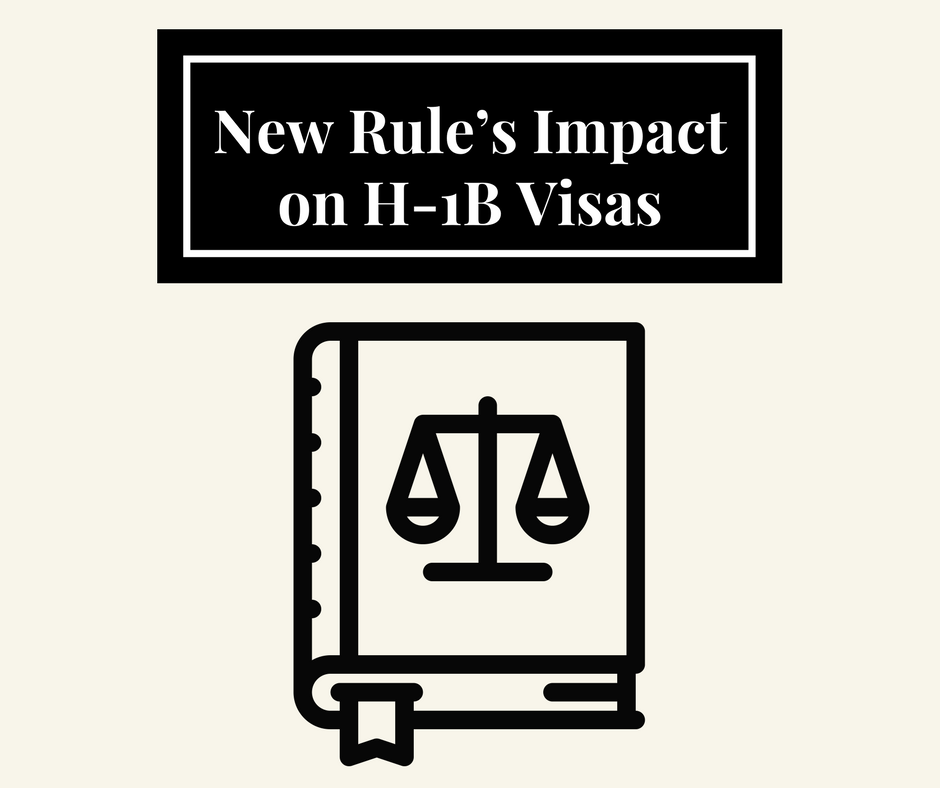On January 17, 2017, the final Department of Homeland Security (DHS) rule entitled “Retention of EB-1, EB-2, and EB-3 Immigrant Workers and Program Improvements Affecting High-Skilled Nonimmigrant Workers” took effect.
The rule amended regulations related to various employment-based immigrant and nonimmigrant visa programs, including the H-1B.
Since this is the first filing season where it will be in effect, we wanted to provide answers to the commonly asked questions about the changes.
- How does the new rule impact my H-1B admission period?
- Can I extend my H-1B status beyond six years?
- Can I be granted an H-1B extension if my priority date is current?
- Does my petition seeking to extend my H-1B status have to be from the employer filing the underlying PERM and immigrant petition?
- Does the new rule provide H-1B workers with whistleblower protection?
1. How does the new rule impact my H-1B admission period?
The new rule clarified the Department of Homeland Security’s policy about recapturing time and exemptions to the six-year limit for H-1B. You can recapture any period of time spent out of the United States for more than twenty four hours as well as time spent in nonimmigrant status other than H-1B or L-1.
Also, it does not matter when you last had H-1B status; you can still use this recapture provision as long as you have time to be recaptured. The ability to recapture time spent abroad and/or revive a prior cap-subject H-1B is an invaluable asset in this time of limited H-1Bs and high demand.
2. Can I extend my H-1B status beyond six years?
You may be eligible for a one- or three-year extension of H-1B status beyond the standard six-year maximum if you file for a pending labor certification or I-140 petition at least 365 days prior to the start date requested in the petition.
You can request to recapture time spent abroad in addition to that one-year extension in the same petition.
3. Can I be granted an H-1B extension if my priority date is current?
In most cases, you will not be granted an H-1B extension if your priority date is current. You must file for an adjustment of status or apply for an immigrant visa within one year upon the visa becoming available.
If the one-year period is interrupted by the unavailability of visas, a new one-year period starts when an immigrant visa becomes available again.
USCIS may excuse a failure to file an adjustment of status if you can show circumstances beyond your control.
4. Does my petition seeking to extend my H-1B status have to be from the employer filing the underlying PERM and immigrant petition?
No, you can have one employer requesting the H-1B extension and another employer file the immigrant petition.
However, it is important to note that the aggregation of time for multiple petitions from separate employers is not permitted.
If, for example, one employer filed a PERM that has been pending for seven months, and a new employer filed a PERM for six months, you cannot combine them. You must have PERM and/or I-140 applications from a single employer pending for 365 days.
5. Does the new rule provide H-1B workers with whistleblower protection?
Yes, if an employer retaliates against you based on reporting a violation of the employer’s obligations under the labor condition application (LCA), DHS may consider a loss of status caused by the worker’s termination to be an “extraordinary circumstance” and therefore grant an extension or change of status.
